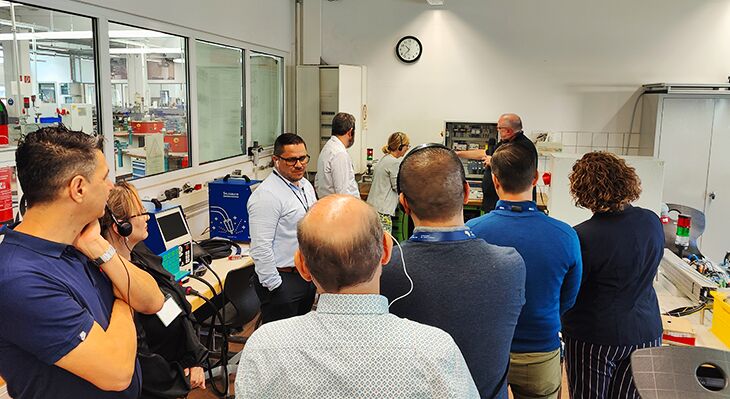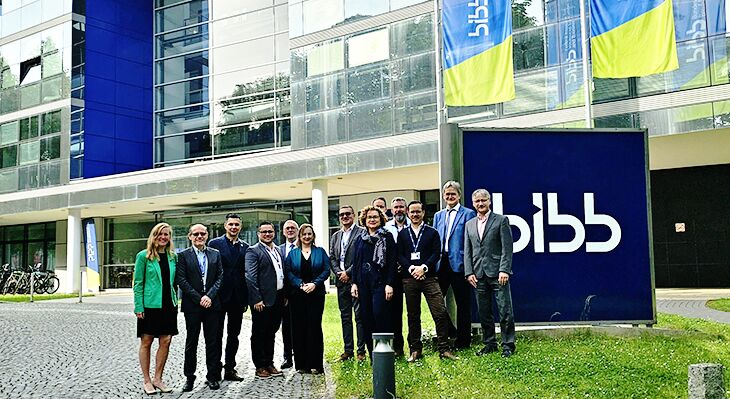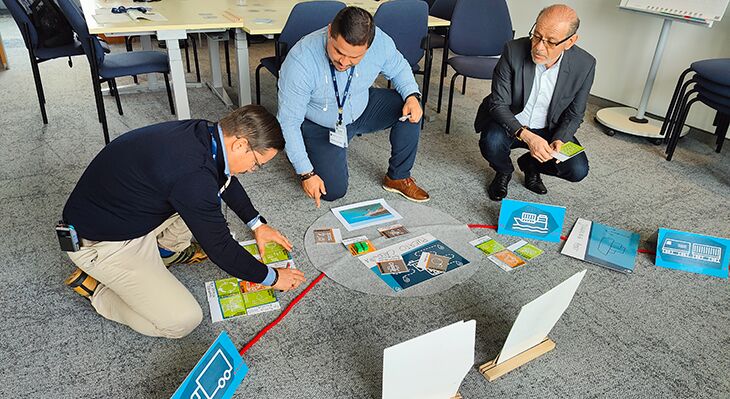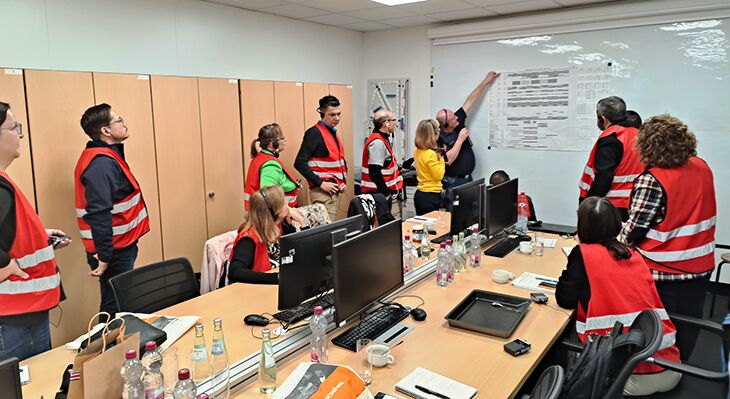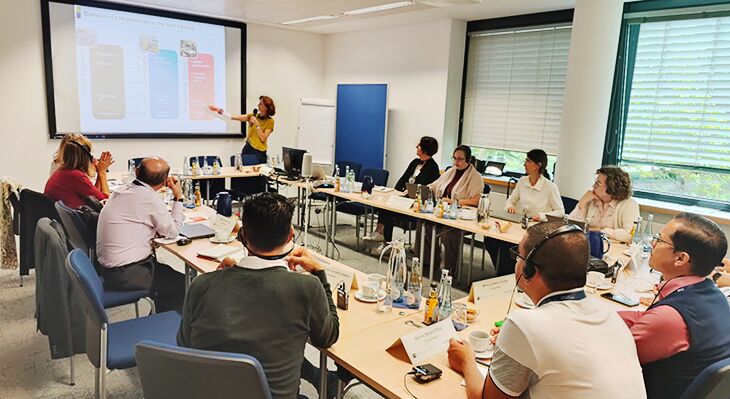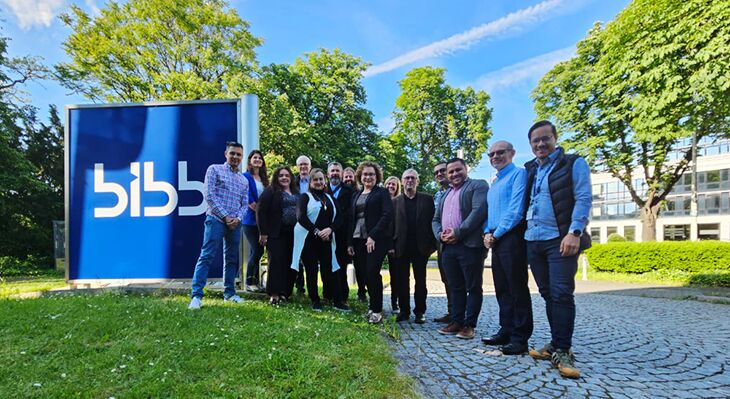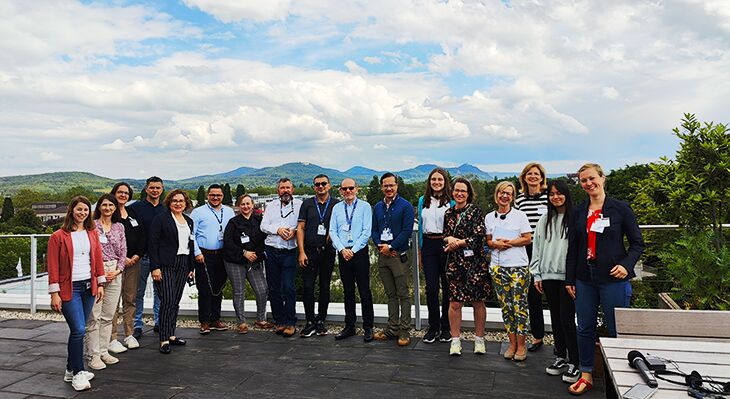The Costa Rican Ministry of Education visits GOVET
20.06.2024
Training regulations require a great deal of coordination with many stakeholders being involved in their development and implementation. Eight representatives of the Ministry of Education in Costa Rica examined this issue on a study trip and exchanged ideas and views with BIBB colleagues and companies in the region.
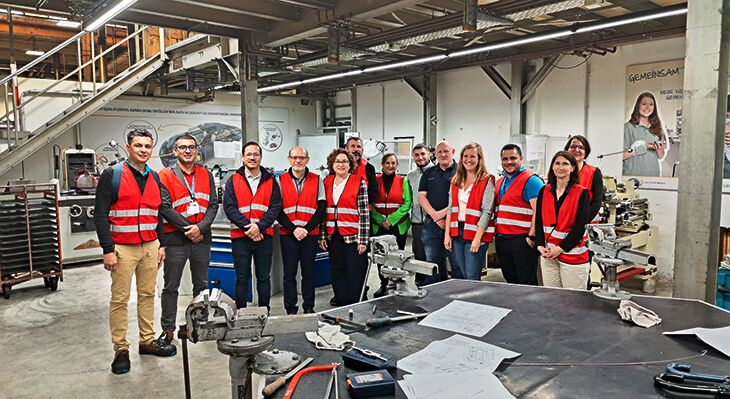
On behalf of the Federal Ministry of Education and Research (BMBF), GOVET invited eight representatives of the Costa Rican Ministry of Education (Ministerio de Educación Pública) to participate in a study visit to Germany. The aim of the visit was for the participants to get to know the dual system in Germany and to discuss the topic training regulations with BIBB colleagues.
Close and trusting cooperation with the Costa Rican Ministry of Education is very important to us. We’ve had an ongoing exchange in place since 2016 and are delighted at the developments achieved by our partners.
Alexander Hochradel, Senior Policy Officer at the BMBF
BIBB Expertise
A range of colleagues from the Federal Institute for Vocational Education and Training (BIBB) provided valuable insights into different areas of their regulation department. At BIBB, the Department "Structure and Regulation of VET" deals with the development and modernisation of training regulations. Gabriele Jordanski offered an insight into the occupation of industrial clerk, which has only recently been updated, while Anita Milolaza introduced the hotel and hospitality sector occupations. Dr. Heike Krämer presented the occupational profile of media designer. Participants also had the opportunity to clarify any remaining questions and impressions gained with Dr. Gert Zinke, who the participants had met previously in November 2023 in Costa Rica as part of a comprehensive workshop on training regulations. Networking with colleagues focussed in particular on facilitating flexibility within the curriculum and on integrating business and social partners.
It is a real pleasure and an honour to welcome our partners from Costa Rica to BIBB and to see the successes achieved by the close cooperation with GOVET. A wide range of different themes has shaped the exchange and discussion over recent years.
Professor Dr. Hubert Ertl, Director of Research and Vice President of BIBB.
Experiencing vocational training
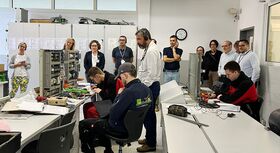
Frank Prokop is training manager at GKN Sinter, a metal manufacturing company in Bonn. He has previously hosted GOVET with other delegations on multiple occasions and this time again provided a comprehensive insight into training activity from an operational perspective. He emphasised the importance of dual training for retaining skilled workers in the company and discussed the flexible organisation of training with the experts from Costa Rica.
At the Bonn municipal utility company, the delegation from Costa Rica received an insight into training in a major organisation. Here, dual vocational education and training is offered in 27 training occupations in the technical and commercial area. Part-time models and dual courses of study are also provided. The guests from Costa Rica were very interested in the role and responsibilities of voluntary trainers and in their cooperation with the training representatives. They were also particularly impressed by the professional training marketing, which has a positive effect on numbers of applicants for training positions and, over the long term, on former trainees remaining with the company.
The visit to Aktion Mensch e.V. also showed how important it is to be inclusive in the way we think about and embrace vocational education and training. Aktion Mensch is Germany's largest private funding organisation and supports social projects for people with and without disabilities. Training has been offered in commercial and IT occupations since 2011. Three trainees prepared the visit for the Costa Rican delegation, delivered parts of the presentation and were available, together with their trainers, to take questions.
Besides the company-based element of the dual vocational education and training, at the Heinrich-Hertz vocational school it was evident just how many opportunities there are for young people. In addition to traditional dual VET most vocational schools or colleges also offer school-based training governed by federal state regulations. They also offer the opportunity to complete the upper secondary school-leaving certificate/specialised upper secondary school-leaving certificate. Integration classes and classes alongside training preparing for the upper secondary school leaving certificate are also offered.
The commitment shown by the chambers was also clearly in evidence on a visit to the Gemeinschaftslehrwerkstatt (GLW) [Community Learning Workshop] of the Bonn/Rhine-Sieg Chamber of Industry and Commerce (IHK). The GLW is an inter-company training workshop and offers advanced training courses which aim to support companies when delivering training – a further tool in the German system for facilitating and providing high-quality training. Ms Scharle, IHK spokesperson for vocational education and training and for ensuring the availability of skilled workers, and Thomas Franke, head of training at the GLW, provided participants with a comprehensive insight into the process and content of examinations.
The BMBF-funded CoRiCert project also focuses on all matters concerning examinations. Its project managers together with two experts attended the event in order to spend half a day exchanging views and ideas with delegates. The interactive discussion with participants covered the options and tools available to support practical examinations. A trial of tools through to the end of the project was agreed.
For my team and I, the study visit was a unique opportunity to get to know the dual system of vocational education and training in Germany and in particular to gain inspiration for our own dual model in terms of training regulations and the school and company-based implementation.
Alberto Calvo Leiva, head of the technical training department at the Costa Rican Ministry of Education (MEP)
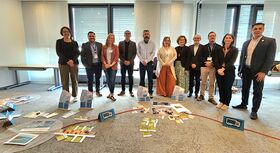
A further highlight of the study visit was running the VET Chain workshops with participants. Taking a supply chain as an example, participants discuss the impacts and challenges of sustainability on vocational education and training. GOVET has developed VET Chain as a workshop tool to support international consultation. The group from Costa Rica examined the supply chain of a heart catheter produced in Costa Rica. The results show that while many aspects of sustainability are established in training regulations, the company-based element remains a weak point in this respect and that there is a lack of practical implementation guidelines for supporting sustainable actions and training.
The final workshop provided the group with a good opportunity to reflect on their experiences and on the visits. It became clear that participants had gained many new insights, particularly at the level of implementation and the resulting demands this placed on training regulations.
Background information
Since 2016, Germany and Costa Rica have been cooperating in vocational education and training on the basis of a joint declaration of intent between the Federal Ministry of Education and Research (BMBF) and the Costa Rican Ministry of Education (MEP). The BMBF provides support in the "status of observer" to the Vocational Training Commission for advising on and promoting dual vocational education and training in Costa Rica (CAP). The CAP is made up of representatives of state ministries, institutions, the private sector and social partners, and makes political and strategic decisions on issues relating to the design, financing, and institutional and legal consolidation of dual vocational education and training. Via GOVET, the BMBF also supports and advises the Costa Rican Ministry of Education on the operational implementation of Educación Dual.
With dialogue, consultation, delegation trips and expert discussions having taken place since 2016, the BMBF played its part in Costa Rica issuing a decree in 2018 on the introduction of dual training. On 12 August 2019, the parliament passed the act on dual VET, which entered into force one month later. As additional support for the partner countries reforms, two further BMBF projects (CoRiVET and CoRiCert) are helping to consolidate VET research and the involvement of business and social partners in vocational education and training and Costa Rica.
